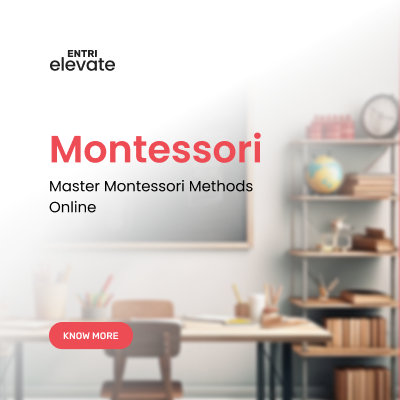Table of Contents
The Occupational English Test (OET) Listening module comprises various question types designed to evaluate candidates’ proficiency in understanding spoken English within healthcare settings. One common question type involves multiple-choice questions, where candidates must carefully listen to a dialogue and choose the most appropriate response or answer from a set of options. This assesses their ability to discern specific details, identify main ideas, and comprehend implied meanings within healthcare-related conversations. Another prevalent task is note completion, which evaluates candidates’ capacity to extract specific information from the audio and accurately fill in missing details on a form or summary.
Additionally, short-answer questions require candidates to provide concise responses to prompts based on the information presented in the listening material, demonstrating their comprehension and ability to extract key details. Moreover, the matching task assesses the candidates’ proficiency in associating information, such as symptoms with potential diagnoses or patient information with appropriate medical interventions. Overall, the OET Listening module incorporates a diverse range of question types to comprehensively evaluate candidates’ listening skills in various healthcare scenarios, ensuring they can effectively understand and respond to spoken information within a professional medical context.
OET Listening Questions – Overview
The OET Listening module is a pivotal component of the Occupational English Test, designed to assess the listening skills of healthcare professionals in English-speaking environments. This section consists of a variety of question types aimed at evaluating candidates’ abilities to comprehend spoken English in healthcare contexts.
- One prevalent question type involves multiple-choice questions, where candidates must select the most appropriate response or answer from a set of options based on the information presented in the audio recordings.
- This assesses their capacity to discern specific details, main ideas, and implied meanings within healthcare-related dialogues.
- Another common task is note completion, where candidates listen for specific information to fill in the missing details on a form or summary.
- This evaluates their ability to extract precise details from the listening material.
- Additionally, short-answer questions are included, requiring candidates to respond briefly to prompts based on the information presented in the audio.
As candidates navigate through the diverse question types, their performance on the OET Listening module reflects their aptitude for communication and comprehension in English within the healthcare domain. The OET Listening module aims to comprehensively assess candidates’ listening proficiency in various healthcare scenarios, ensuring their preparedness to understand and respond effectively to spoken information within a professional medical context.
OET Listening Questions – Types
The OET Listening test employs various question types strategically crafted to assess candidate’s abilities to comprehend specific details, identify main ideas, understand relationships between ideas, and discern the speaker’s attitude and purpose. While the test may pose challenges, it is crucial to recognize its purpose—to evaluate English language proficiency in healthcare contexts.
Part A – Note Completion.
Part B – Multiple Choice Questions.
Part C – Multiple Choice Questions.
In the OET Listening test, Part C revolves around Multiple Choice Questions, presenting candidates with a unique challenge centered on healthcare professionals delivering presentations. This section involves listening to two distinct audio recordings, each capturing the essence of informative and professional presentations within the healthcare domain.
- Much like Part B, candidates are tasked with responding to six multiple-choice questions for each of these recordings.
- The questions are strategically crafted to assess participants’ ability to comprehend the content of the presentations, evaluate key concepts, and make informed choices based on the information presented orally.
- These presentations may cover a spectrum of healthcare-related topics, ranging from advancements in medical technology to clinical research findings or changes in healthcare policies.
- Success in Part C not only hinges on the candidates’ capacity for effective listening but also on their analytical skills in grasping the core messages and critical details embedded in professional presentations.
- This section evaluates their ability to navigate complex and technical information, a crucial skill for healthcare professionals who regularly engage with evolving medical knowledge.
As candidates engage with the Multiple Choice Questions in Part C, they showcase their aptitude for synthesizing information from oral presentations, reinforcing their readiness to communicate effectively and stay informed in the dynamic landscape of healthcare. Regular practice and exposure to diverse healthcare presentations contribute significantly to success in this evaluative component of the OET Listening test.
OET Listening Questions – Tips to Ace Exam
To excel in the OET Listening test, it’s imperative to adopt a strategic approach that goes beyond mere familiarity with the English language. Regular practice stands as a cornerstone for success in this examination. Engage in consistent listening exercises that mirror the complexity and diversity of scenarios encountered in healthcare settings.
- This practice not only hones your listening skills but also cultivates an intuitive understanding of the specific nuances within medical conversations.
- Understanding the subtleties of different question types is equally crucial. As you prepare, familiarize yourself with the unique demands of each segment.
- For instance, in Part A, where Note Completion is the focus, practice active listening to capture key details related to patient care.
- In Part B, which involves Multiple Choice questions in workplace situations, cultivate the ability to discern crucial information amidst diverse scenarios.
- Similarly, for Part C, where Multiple Choice questions are centered around healthcare presentations, develop a knack for identifying key concepts within professional talks.
- A valuable resource for additional guidance lies in our blog, where you can find expert tips and insights tailored to OET Listening preparation.
- These insights may include specific strategies for tackling each question type, recommended listening materials, and time management techniques crucial for success on exam day.
In summary, a holistic approach to OET Listening preparation involves consistent practice, a nuanced understanding of question types, and leveraging additional tips and insights from reputable sources. By combining these elements, you enhance your readiness to navigate the intricacies of healthcare-related listening scenarios and increase your chances of acing the OET Listening test.
OET Listening Questions – Conclusion
As candidates navigate through these diverse question types, the OET Listening module serves as a comprehensive evaluation of their listening skills, ensuring they can proficiently understand and respond to spoken information in the complex and dynamic environment of healthcare. In these tasks, candidates must carefully listen to audio recordings and select the most appropriate response or answer from a set of options. This assesses their ability to grasp specific details, identify main ideas, and comprehend nuanced information presented in healthcare-related conversations. These questions assess their ability to communicate effectively and succinctly in English within a medical context.
Another integral aspect of the OET Listening module is the note completion task. Here, candidates listen attentively to extract specific details and then fill in the missing information on a form or summary. This evaluates their capacity to extract and comprehend essential details from the auditory material. Additionally, short-answer questions are included, requiring candidates to provide concise responses to prompts based on the information presented in the audio. This multifaceted approach to testing listening comprehension ensures that healthcare professionals are well-equipped to communicate and comprehend effectively in English within the intricacies of their medical practice.
OET Listening Questions – Frequently Asked Questions
The OET Listening module encompasses a range of question types designed to evaluate healthcare professionals’ proficiency in understanding spoken English within medical contexts. Among the various question types, multiple-choice questions are prominent.










